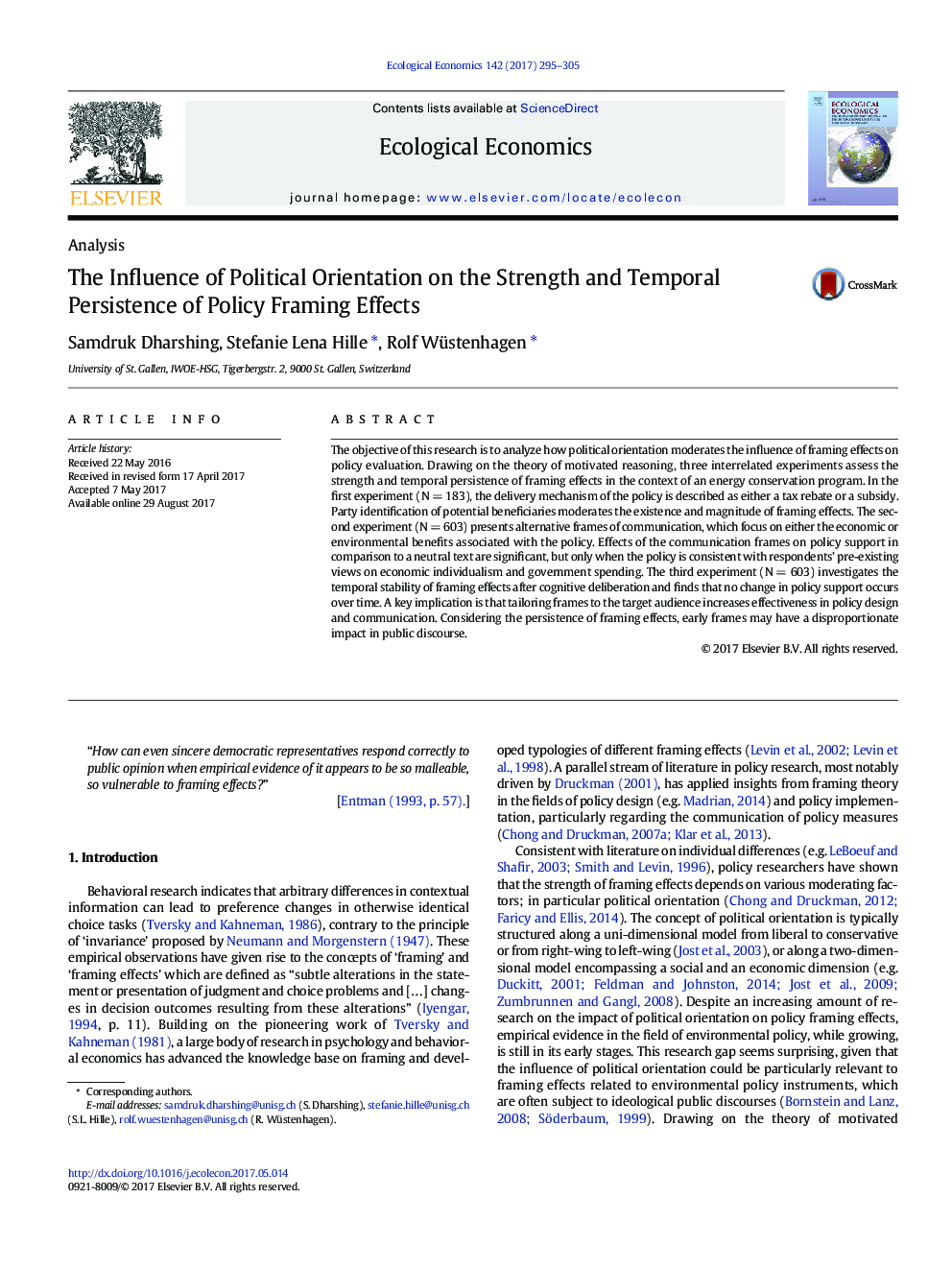| Article ID | Journal | Published Year | Pages | File Type |
|---|---|---|---|---|
| 5048552 | Ecological Economics | 2017 | 11 Pages |
â¢Analysis of how political orientation moderates policy framing effectsâ¢Three experiments to assess the strength and temporal persistence of framing effectsâ¢Party identification moderates framing effects related to policy delivery mechanismâ¢Prior views on market liberalism moderate the impact of frames on policy preferenceâ¢Framing effects - if they occur - remain persistent after cognitive deliberation
The objective of this research is to analyze how political orientation moderates the influence of framing effects on policy evaluation. Drawing on the theory of motivated reasoning, three interrelated experiments assess the strength and temporal persistence of framing effects in the context of an energy conservation program. In the first experiment (NÂ =Â 183), the delivery mechanism of the policy is described as either a tax rebate or a subsidy. Party identification of potential beneficiaries moderates the existence and magnitude of framing effects. The second experiment (NÂ =Â 603) presents alternative frames of communication, which focus on either the economic or environmental benefits associated with the policy. Effects of the communication frames on policy support in comparison to a neutral text are significant, but only when the policy is consistent with respondents' pre-existing views on economic individualism and government spending. The third experiment (NÂ =Â 603) investigates the temporal stability of framing effects after cognitive deliberation and finds that no change in policy support occurs over time. A key implication is that tailoring frames to the target audience increases effectiveness in policy design and communication. Considering the persistence of framing effects, early frames may have a disproportionate impact in public discourse.
